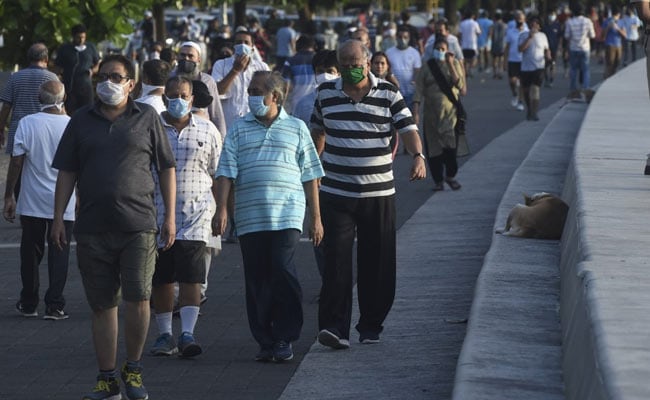
[ad_1]

Mumbai has logged 51,100 coronavirus cases, Delhi has slightly less than 30,000.
Mumbai:
The government of Maharashtra — the biggest hotspot of coronavirus in the country with more than 90,000 cases — has emphatically denied all reports of a community transmission. “I don’t believe there is community spread. This is the assumption in my state,” state health minister Rajesh Tope said in the backdrop of concerns about community spread in Delhi.
Yesterday, Delhi Health Minister Satyendar Jain said half the coronavirus cases in the national capital cannot be traced to any source, which suggests community transmission. As the Centre rejected the claim, Mr Jain today said, “There is transmission in the community, but if it is community transmission or not that can be declared by Centre only, it is a technical term.”
Delhi has a shade less than 30,00 cases — way below Mumbai, which has so far logged 51,100 cases — crossing the numbers of Wuhan, the city in China where the virus surfaced in December.
“There needs to be 20 to 40 per cent of cases, which have to come directly from the community, where we cannot find out through contact tracing where they have contracted it from,” Rajesh Tope conceded while talking to NDTV. “It is either from coming in contact with high risk contacts like the index case or through infection from the index case through an intermediary,” he explained.
The state, he said, is tracing every case through the “3T principle — Aggressive Tracing, Testing and Isolation and Treatment”.
“We are working according to this principle in Maharashtra and whatever cases are there at present, every case is traced,” he added.
Fears of community spread in the country escalated after reports of a survey that stated that around 15 to 30 per cent of the population living in containment zones and hotspots had been exposed to the infection. The Delhi Health Minister’s comments also led to the substantiation of those fears.
The Indian Council of Medical Research, the country’s nodal body in the fight against coronavirus, has denied reports that a sero-survey showed that about one-third of the people living in containment zones and hotspots may have been infected with COVID-19 and recovered without any definitive contact tracing.
“The findings appeared in media related to ICMR Sero-Survey for COVID-19 are speculative and survey results yet to be finalized,” the ICMR tweeted.
Mumbai has seen a steady rise in deaths this month, which doctors attributed to the shortage of ICU beds. The city has recorded an average of 53 deaths every day in June, a jump from the average 32 last month.
Admitting that it is a “hand-to-mouth” situation, Mr Tope said, “We are getting 80 per cent of beds from private hospitals and this includes even ICU beds”.
“More than 45,000 people have recovered and have been discharged. Our death rate is around 3.5%. Our doubling rate is more than 20 days. In all parameters, we are at par, or doing better than the national average,” the minister added.
[ad_2]
Source link